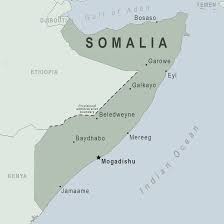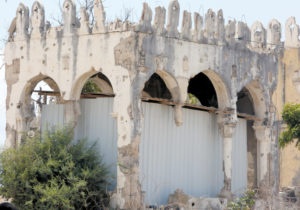
The first wave of Yemenite Jews arrived in 1880s Somali territories , and other Ottoman friendly territories around the same time when Yemenites immigrated to the Ottoman Jerusalem. From 1881 to 1882, a few hundred Jews left but more arrived until 1914. Yemenite-Somali Jews served as prominent leaders in successive Somali governments of the 1960s and 1970s. In the 1970s when Somalia joined the Arab League Yemenite-Somali Jews sold their businesses and emigrated.
The sultan of the Jews in Somalia is named Ahmed Jama Hersi and does not know the first thing about Judaism. He is a Muslim, as were his ancestors back at least 800 years. But he and his people are treated badly, cursed as descendants of Israelites. The name of the tribe is Yibir, or Hebrew.
 Not much is known about the lineage of the Yibir, one of Somalia’s ”sab,” or outcast, clans but it is believed that they are ethnic Jews in a strongly Muslim country. For many years the Yibir were forbidden to be educated, and Mr. Hersi says he can barely spell his name. They do work that is considered to be base, like metalworking and shoemaking.
Not much is known about the lineage of the Yibir, one of Somalia’s ”sab,” or outcast, clans but it is believed that they are ethnic Jews in a strongly Muslim country. For many years the Yibir were forbidden to be educated, and Mr. Hersi says he can barely spell his name. They do work that is considered to be base, like metalworking and shoemaking.
Present day Yemenite-Somali Jews are no more than 5 to 10 merchant families widely distributed along the coast in Benadir coast, and northern Somali cities of Hafun, Garowe, Eiyl, Erigavo, Las Qoray, and other coastal towns of northern Somalia. The ruins of the historic Obbia’s Eastern Synagogues are still in Obbia town in Somalia. Many smaller local Synagogues in the towns of Hafun, Alula and Bender-Qasim were destroyed by the Italian fascists in 1930s.